


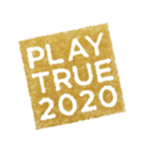
© Keita Yasukawa

I was born with a congenital vision impairment arising from oculocutaneous albinism. Although I grew up visually impaired, my parents never allowed me to use my vision as an excuse not to participate in sport. Of the various sports that I practiced, like baseball, football and basketball, competitive swimming was the one that I fell in love with. It just fit; it felt like home. I loved the quiet space when my head was in the water, and the feel of pulling through the water with every stroke I took. I loved the people, and I loved the values of the sport and the atmosphere. I loved all of this from the moment I started swimming until my retirement in 2011.
Sport has changed me in so many ways; swimming gave me the opportunity to achieve things I never expected. I travelled the world, experienced many cultures, competed for my country, became a 3-time Paralympian and 12-time Paralympic medallist, became an advocate for inclusion and the Paralympic movement, and evidentially all of this brought me to my current role as Chairperson of the IPC Athletes’ Council.
Constantly being looked at and treated differently by peers and society can be a difficult thing to grow up with as a person with a disability. Many times, people assumed I couldn’t do things because of my vision, or had lower standards for me than my peers. As I encountered this experiences, I used them as fuel to prove people wrong and shift their perception of what disability means. Sport was the driving factor that gave me the confidence to hold my head up high, be proud of the person that I am and to embrace every experience; positive or negative and make the best out of it.

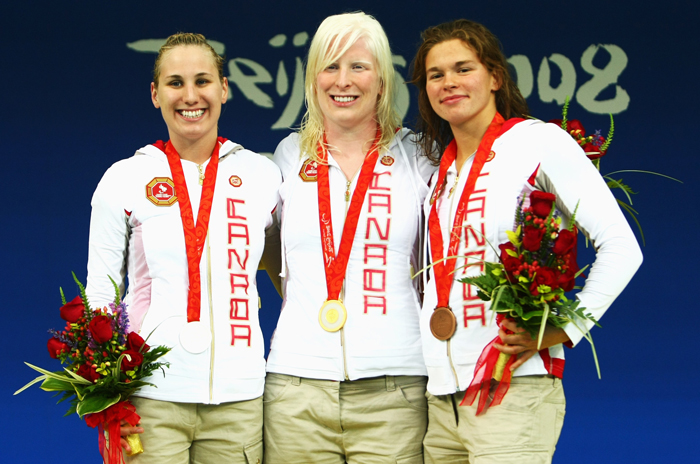
© Chris Hyde

I was eight years old when I found the sport of competitive swimming. My parents raised me the same way as my older brother, who does not have a vision impairment. They allowed me to try everything and when I fell, they would help me up. So, if my older brother was playing basketball, I wanted to play basketball. If he played baseball, I wanted to play baseball. I wanted to be just like him, so I played all of the sports that he played, whether they required having good vision or not.
About three years into being part of my local swim club, I was at a swimming competition where I had just won a medal, I walked in on a conversation between a coach and a rival swimmer. The coach was scolding his athlete who finished behind me, asking her why she couldn’t beat “the blind swimmer.”
It was the first time I ever experienced discrimination. I never felt different from my peers until that moment, and then suddenly I was drastically different. It was a turning point in my life. It opened up a new world that tagged me as being “different”. I could have chosen to let such attitudes shut me down and make me dislike my impairment. Alternatively, I could have chosen to embrace my impairment and use it to allow me to grow as a person. Thankfully, I chose the latter. This spirit of defiance was the source of my energy for training hard enough to compete at three Paralympic Games.

© Keita Yasukawa
The world’s perception of people with an impairment is changing. It’s getting better, but the stigma attached to impairment is still there. Having an impairment is seen as a negative and a limiting factor. The more opportunities we have to integrate people with disabilities into society, the quicker this stigma will diminish. We all have different abilities, and as a society, it is our responsibility to recognize and accept everyone for who they are and provide them equal opportunity to thrive.
For any child, the family plays an impairment role in them fulfilling their potential and showcasing their abilities. This is even greater for a child with an impairment who will never fulfil their abilities if their family decides they should not try something. Children of all abilities should be encouraged to try new activities and find out what they are good at and what they are not.
My parents gave me the opportunity and freedom to try things, and this made it possible for me to grasp the opportunity to find something that would define my life.
In the past, when people thought of Para swimming, they probably felt a bit sorry for the people who were swimming in the pool. But, with the dramatic increase in the competitive level of Para athletes, I think it is establishing a sound position for itself as a sporting event. People are starting to feel inspired by the great performance of Para athletes and realize the immense potential that Para sport has.
I am very proud to be involved in developing Paralympic Movement as a Chairperson of the IPC Athletes’ Council. Current athletes and next-generation athletes should have the opportunity to express their voice in a constructive and effective way so that there will be further development of not just Para sport but all sport. Athletes’ opinions should be carefully listened to and reflected in decisions. Sport will become something even more wonderful that way, and something that spreads even more deeply among people.

Para sport is undergoing dramatic development but there are still many decisions that we as the Paralympic Movement must take together. One of the most significant is to protect clean sport and clean athletes.
We have to do more than simply put an anti-doping system in place. A big piece of it is finding unique ways to educate athletes on their rights and responsibilities when it comes to anti-doping. We also need to define a clearer and trusted pathway that protects athletes in the case where they are put into a position that could compromise them and their responsibilities. I also think we need to have stronger mechanisms in place that take an athletes entourage into question and holds them to a higher level or responsibility when it comes to anti-doping rule violations.
In addition, athletes have to understand that they are at the centre of sport and the importance of expressing constructive opinions. This means that they have to be able to do more than simply express dissatisfaction. They must understand their rights and express logical opinions. I think one of the major roles of members of the IPC is to guide athletes toward that.
I can’t be an advocate for everybody and not everybody is going to relate to me and my story, but they might relate somebody else and their story. Let athletes be advocates. I want to do my best to ensure that athletes, who are the main characters in sport, will always be kept at the centre, and aim for further development of Para sport as well as spread the wonderful culture of sport correctly within society. It would be great if sport triggers people’s thinking and society moves in an even better direction.

© Keita Yasukawa

© Keita Yasukawa
I am a person just like any other person, even if I am a visually impaired. Impairment does not define my character, nor do I think constantly about my impairment.
The environment in which a person is brought up is one of the big factors that shape a person’s character. I can think this way because of my parents, who treated me as an ordinary child, and my friends, who treated me as an ordinary friend.
I can’t deny that I am a little different from other people, but I know no different. I don’t want my abilities to be defined by my visual impairment, and I have never used it as an excuse either.
It’s those bumps in the road that really builds you as a character, and builds you as a person and makes you stronger. It’s the times you fail, and you get back up that actually make you into a better person and make you stand up at that end goal, even more successful and proud of where you come from. For me, the strength nurtured through competitive swimming made that possible. I don’t think I’d be who I am today without swimming.
Repeatedly overcoming difficult circumstances creates strong confidence, and the door to a new world opens once you have developed unshakable confidence. There may be more difficulties waiting for you on the other side of that door, but you should be able to overcome them if you deal with them with the unshakable confidence that you developed.
I want to utilize these things that I learnt through my own experience toward the further development of sport.
Sport led my life toward the right path. I am grateful and will keep walking forward with a bright, broad and full 100% vision.
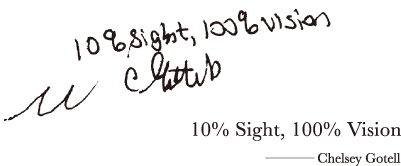
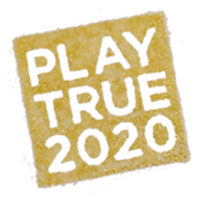
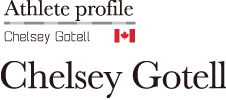
Born in 1986 in Antigonish, Nova Scotia, Canada.
Although born with a congenital visual impairment, spent her childhood enjoying sport such as baseball, football and basketball. Showed special talent in competitive swimming, which she began when she was eight years old, participating in the Paralympic Games only six years after starting the sport.
At age 14, she was the youngest member of the Canadian national team when she took part in her first Paralympic Games—the Sydney 2000 Paralympic Games. Competed in the two Paralympic Games that followed, Athens 2004 and Beijing 2008, winning a total of 12 medals.
She retired in 2011 and now serves as Chairperson of the IPC Athletes’ Council.